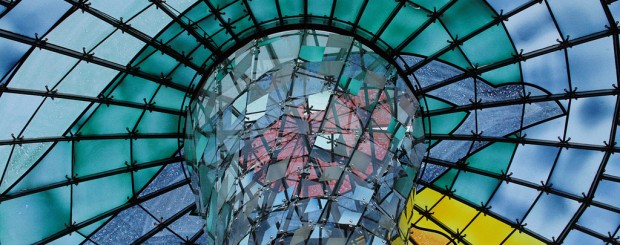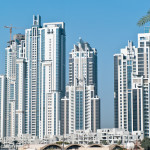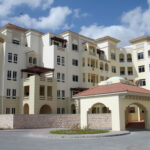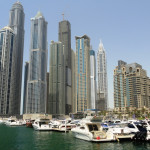10 Things You Learn When You Move To Dubai
Coming to Dubai (or any other part of the United Arab Emirates) to live and work will doubtless be enriching. That’s in the monetary sense, applying the most limited range of meaning to the word…
But by taking a few other things onboard as well, you’ll eventually leaved enriched in the broader sense of being a more knowledgeable human being than when you first arrived.
I’m going to try and couch ten of the things I have learned in sixteen years living in Dubai in positive terms.
Malls and Friday afternoons
You can’t escape Dubai’s shopping malls, and at times when the climate is just too extreme, they can be great “homes away from home.”
They’ve got everything going for them: free covered parking, more shops than you could ever imagine existed, food outlets to suit all budgets, cinemas, kids’ play areas, and in some of the more recent additions to the ranks, a ski field (Mall of the Emirates), an ice-skating rink, and a huge aquarium (Dubai Mall).
There is, however, one time the malls are best avoided: Friday, from about 3:00pm until closing time.
Friday is, you see, the first day of the UAE weekend. It’s also the day of the week for religious observances. So, after Mosque attendance, families (some of whom would be at work any other day of the week) head for the malls.
…And the bigger, more glitzy, and attraction-filled the mall, the more of a magnet it proves to be to us all.
Do your business in the malls on Friday morning, then skedaddle! Once you’ve experienced a Friday afternoon/evening or two, you’ll see what I mean—unless you like crowds and a buzzy atmosphere.
Learn where to go for a bit of peace and quiet in the malls
Of course there are restaurants and coffee shops, but sometimes we need something extra. If you must be in, for example, Dubai Mall at the busy time, when the noise gets to be too much for you, or if you have a baby to feed or change, gravitate toward the expensive shops.
What you will find, and it is particularly evident in Dubai Mall, that as soon as you turn into the area where Ralph Lauren and Armani are situated, the sound diminishes appreciably.
There is deep buttoned, velvet draped seating, but for breast feeding mothers, or just parents with babies, the rest room facilities in these areas match the luxury brands that surround them.
There are seating areas that most of us would be happy to have in our houses and two private feeding rooms for mothers and babies. Being very forward thinking, there are similar facilities for fathers to change and care for their children, too. These are available all over the mall, but none match the luxury and relaxation of the posh shop area.
Learn the driving culture and how to anticipate
In the UAE, people drive on the right and the steering wheels are on the left; just like all of the American continent, Europe, and some parts of Asia. So, no problems driving if you come from these areas or have had experience driving in them, right?
Not entirely. There are a few extra things at play here. I think it’s fair to say that a goodly percentage of people driving on Dubai’s excellent roads and highways come from cultures that have less stringent road codes than most European or North American drivers are used to.
For example, people don’t generally signal when they are changing lanes. You have to learn by other means when this is likely to happen. Sometimes when drivers do signal, they abruptly change their minds and switch back without letting you know they are about to do so. It’s completely illegal, but it happens.
Also, a high percentage of drivers on the roads and highways are talking and gesturing on their mobile phones at any given time. This too is illegal.
You need to be constantly ready for the worst that can happen, especially on the highways, where it can all too often happen at speed. You’ll fairly quickly learn to anticipate the warning signs and develop a sixth sense about certain cars – and how they will most likely be driven by their owners.
Where I learned to drive, we call this art “defensive driving.” Many Dubai drivers don’t have it, so you need it big time.
Until you have had a few months experience on the roads, stay out of the fast lane on the multilane highways. This lane is for people who want to go well over the speed limit, and they will bully you mercilessly if you are not doing similar speeds.
One way is to get right up behind you. It is terrifying but don’t flinch. Stay calm, signal, and ease to the right. As soon as there is a gap, this bully will charge past on the hard shoulder – also illegal, of course.
Drinking and driving is a no-no
Dubai isn’t Saudi Arabia, but if you get caught driving after having consumed alcohol (which is available in Dubai), you’ll still be in big trouble.
You’ll be jailed, you’ll be fined, and you’ll almost certainly be deported after serving your sentence. That of course, will have a knock-on effect on your job, your housing, your plans, and your children’s schooling.
Leave the car in the hotel car-park and come and collect it next day. Two taxi fares, even if you live all the way out in Ras Al Khaimah, are still going to be an awful lot cheaper than the consequences of being caught and prosecuted.
Always be polite on the roads, even when really provoked
Learn to resist the urge to gesticulate with your hands to indicate your total frustration with another driver’s lack of road manners or driving behavior. The same goes for things you might say inside the car – the other driver can’t hear you, but your lips can be seen moving.
Now, if the offending driver happens to be an Emirati national and takes offence at what he or she sees you do, or imagines that you have done, and files a complaint with the Dubai Traffic Police, the burden of proof that you didn’t is going to be very much on you.
At the very least, it’s going to soak up hours of your time in a Dubai Police Station making profound apologies for the offense you caused. Keep your hands clamped tight on the steering wheel and don’t make eye contact with the other driver. This is not your country, remember?
And be polite to the powerless too
If you’re in a position of privilege in Dubai, as you certainly will be by virtue of your earning power, always remember that this probably puts you ahead of 90% or more of your fellow Dubai residents.
This changes some people, and they slip into the bullying behavior they see others indulging in. You will have to deal with poorly trained shop assistants, lost taxi drivers, or less than competent workers who get it wrong.
They almost never make mistakes deliberately, and abusing your position on the economic ladder by shouting and browbeating the less powerful is never a good look. If Dubai teaches you to be a bit more understanding of people from vastly less privileged backgrounds and poorer educational status, then it’s taught you something worthwhile.
The cheap way almost always costs more
Dubai prices are both high-end and low-end, though low-end seems to be about AED 20 for a South Indian vegetarian thali these days. It used to be AED 6-7.
If I’ve learned one thing about life in Dubai, it’s that the relentless pursuit of a bargain uses up an incredible amount of time and energy, and often leads to disappointment. I’m thinking of very cheap copy tailoring from Al Satwa. I used to think that once you had a reliable and competent tailor, you had a business relationship for life.
The hard truth is that competence and consistency at the very bottom end of any market are very rare qualities indeed. Wait for the sales in malls instead – buy one good pair of shoes or one good winter coat (and look after them) and they’ll reward you far more and for far longer than any number of cheaper knock-offs.
If you make frequent visits to Dubai Outlet Mall, you can find some genuine bargains, but know what you’re looking for before you go to avoid a buying frenzy.
Embrace Dubai’s multiculturalism
Too many expatriates develop a siege mentality: circle the wagons and swap fear and loathing urban myths about the Dubai racial melting pot.
You’ll have colleagues from all parts of the globe and your children will have the opportunity to make friends via school or sports with other children from exotic places.
You’ll soon learn that most people share the same hopes and dreams that you do, some on a much greater scale and some on a scale so modest that you may feel ashamed at what it takes to satisfy your aspirations and standards.
It never hurts to assume the best of people – always give them the opportunity to be nice and many will.
Good government comes in many forms
You’d hardly call Dubai a democracy. As an expatriate, you have no voting rights, nor will you have the chance to seek UAE citizenship. There seems little likelihood that the ruling powers of Dubai will change any time soon, and they are based on inheritance rather than by popular elections.
Yet you’ll experience a lifestyle that is safe, and you’ll encounter personal honesty far more frequently that you will its opposite. Crime is very, very low: people don’t carry guns (unless they are police), your house is unlikely to be broken into, cars don’t get stolen, and there is no graffiti sprayed mindlessly in public places.
You are not going to be arbitrarily snatched off the streets by secret police and detained without representation. If you have the bad luck to end up in a Dubai Court, due and transparent process of law will be followed, although in Arabic of course.
Your Dubai experience may lead you to reflect on more familiar forms of elective governments, and whether they are actually producing the kinds of societies we all wish to live in, in our hearts.
No dogs
Well, not quite. There are a few, mostly owned by western expatriates. Arabic culture doesn’t exactly see dogs as “man’s best friend.”
However, no dogs means not having to look where you tread, if you get my drift. And that means re-learning to watch your step when holidaying in big cities like Paris during your summer breaks.
Where to learn more?
There’s a useful series of books on the culture shock you will inevitably experience when you step outside the comfort zone of your own country. “Culture Shock! United Arab Emirates,” last updated in 2008, is still a good introduction of what to expect – and the dos and don’ts that will make your experience clearer and trouble-free in Dubai.








